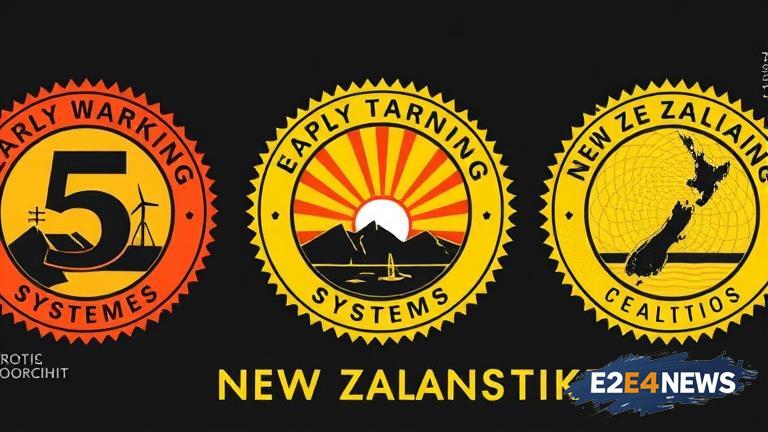The city of Auckland, New Zealand has reached a significant milestone, marking five years since the implementation of its early warning systems. These systems have been designed to provide timely warnings to citizens in the event of natural disasters, such as earthquakes, tsunamis, and floods. Over the past five years, the early warning systems have been triggered numerous times, providing critical minutes or even hours of warning to those in harm’s way. This has allowed people to seek safety, evacuate danger zones, and take necessary precautions to protect themselves and their loved ones. The early warning systems have been particularly effective in reducing the impact of flooding, which has been a major concern for Auckland residents in recent years. By providing early warnings, the systems have enabled people to move their vehicles to higher ground, secure their homes, and avoid traveling through flood-prone areas. The systems have also been used to warn of potential landslides, which can be deadly and cause significant damage to property. In addition to natural disasters, the early warning systems have also been used to alert citizens of other potential hazards, such as severe weather events and industrial accidents. The success of the early warning systems can be attributed to the collaboration between local authorities, emergency services, and the community. The systems have been designed to be flexible and adaptable, allowing them to be easily integrated with other emergency management systems. The use of social media and other digital platforms has also played a critical role in disseminating early warnings to the public. Furthermore, the early warning systems have been continually evaluated and improved, with new technologies and strategies being implemented to enhance their effectiveness. As a result, Auckland has become a model for other cities and countries to follow in terms of early warning systems. The city’s experience has shown that with careful planning, collaboration, and investment, it is possible to create effective early warning systems that can save lives and reduce the impact of disasters. The implementation of early warning systems has also had a positive impact on the local economy, as businesses and residents have been able to minimize losses and quickly recover from disasters. Overall, the five-year anniversary of Auckland’s early warning systems is a significant achievement, and a testament to the city’s commitment to protecting its citizens and reducing the risk of natural disasters. The city will continue to build on this success, exploring new technologies and strategies to further enhance its early warning systems and improve community resilience.
